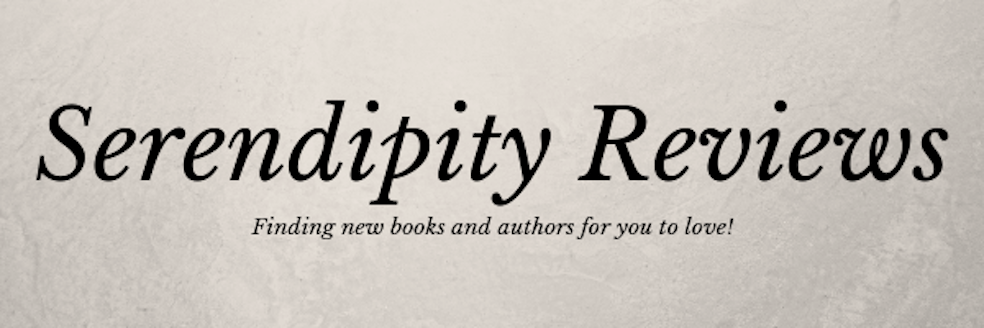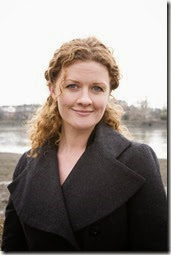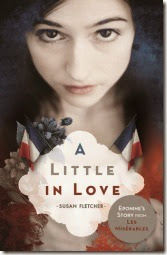As part of the blog tour for A Little In Love, I am pleased to welcome the author, Susan Fletcher, to answer questions about her writing.
1) Your new novel, A Little In Love, is about to be published. How are you feeling about it at this moment?
This is always an emotional time. I am excited, of course – to know that others will finally be reading a tale that I’ve been living and breathing for the past year is a wonderful thought. But equally, it’s terrifying! I always feel very vulnerable when a book is published; this is my fifth book, but even so I can still get very nervous. Above all else, though, I feel very lucky. I am amazed and grateful that this is my job – and it will be a magical moment when I see A Little In Love on a shelf.
2) Your books are normally marketed towards adults. How does it feel to be venturing in the Young Adult market for the first time?
It adds to my nerves! Having written for a brand new readership means I am less able to guess how it might be received – and YA is such a complex, demanding and wonderful market to be entering. But I loved writing this book. It was a challenge - yet an incredibly rewarding one, and I enjoyed every moment of Eponine’ tale. I hope this comes through the prose; I hope the reader can sense how much I loved I writing it.
3) How did you come up with the idea to write Eponine’s story from Les Miserables?
I can’t take credit for it! Chicken House approached me with the idea itself. At the beginning of 2014, they asked if I might be interested in writing Eponine’s story – and I jumped at the chance. It felt like such a fresh, bright adventure for me; I really wanted to write for a teenaged readership. Furthermore, I’ve always loved Les Miserables. For years, I’ve been aware of Eponine as an enigmatic, gentle and misunderstood character that I’d loved to know more about. This book was a gift, in that way.
4) What kind of research did you need to carry out before writing A Little In Love?
The most important thing of all was to know Les Miserables itself inside-out. Hugo’s novel is Eponine’s birthplace; it’s where she lives and breathes, and I knew that if I wanted to tell her tale faithfully and credibly, Les Mis had to be my starting place. It’s a huge book, so it wasn’t easy! And Eponine herself hides away in much of the prose – an un-named shadow, a girl passing by who we only recognise from description alone. But Les Mis is an extraordinary novel – and it was a revelation to read it with such an attentive eye. Aside from Hugo’s text, I researched the French Revolution, the history of cholera, the geography of Paris itself – and I listened to the Les Mis soundtrack from time to time! Driving on the M6, mostly! Its songs are integral to most people’s understanding of the book/play/film, and I found they helped me with my sense of place and feeling and time.
5) Do you plan to expand on any other character’s stories from Les Miserable in the future?
I don’t think so. Eponine was such a bright light for me; she shines out as the most interesting character, the one with most potential and the one with the most appeal to a teenaged audience. I love her the most! The only other character that has such warmth and potential is Gavroche,I think; but he dies far, far younger than Eponine does. I think he is six or seven when he dies, which presents a huge problem to any future writer of his tale.
6) If you could go back in time and ask Victor Hugo one question, what would it be?
How he managed emotionally. I’d ask him this because I find the writing of a book is a tremendously emotional process; I soak up the feelings and worries and situations of my primary characters and carry them with me, through my everyday life. They are hard to shake off, until the book is done. With this in mind, I can’t imagine how writing Les Miserables – a book about poverty, cruelty, desperation and man’s unkindness to man – would have affected Hugo. There ARE decent characters in it, and moments of generosity – but they are brief compared to the immense darkness that feels endemic to the book. How did he survive this? Did the suffering in the book impinge on his daily life? I’d love to know.
7) Being an experienced writer, do you find the process gets easier with each book you write?
Yes and no! Every book is different: research, preparation, travel and even the time of day that I choose to write the novel in can all vary, from project to project. So I feel that I’m in new territory every time. I also like to try out different structures, settings, themes and (as A Little In Love shows!) new readerships – so there is always a reason to doubt myself, or feel afraid of what I’ve chosen to do. There’s always a voice that says, what if you can’t do this? But equally, I now understand myself better as a writer. I know my natural style – and I also know the pitfalls, the routines, the things that help and hinder me. These small discoveries are comforting, in their way. They help me hush that small voice by saying, you’ve done it before; you can do it again!
8) Do you edit as you go along or do you wait until the first draft is finished?
I wait until the first draft is finished. To edit as I go along would slow the process down too much. Far better, I think, to get right to the end of the first draft before the editing starts. I’ve also learned that quite often, the book takes on a life of its own as the first draft progresses and takes turns that you’d never planned for – which could make an early edits a total waste of time! Far better to have a defined feel and knowledge of the book before entering the editing phase.
9) What are you working on right now?
I’m back to adult fiction. I am quite secretive about works-in-progress, but I am writing about a very famous artist in the last year of his life. The novel will look at a friendship he made at that time. I am absolutely loving it!
10) What advice would you give unpublished authors?
Don’t be afraid. Or rather, don’t make the mistake of thinking you are the only writer who is. We all are. It’s a very frightening process – full of such questions as, Am I any good? Is this idea rubbish? Am I wasting my time? Will I dismissed or mocked or overlooked? I still ask these questions of myself, five books in. I think I will always ask them. I think I will always have this sense of being ‘out of my depth’ – as if, ten years ago, they actually meant to publish a different Susan Fletcher but got confused! And yet I know, too, that writing is my great love. I know that, amongst the doubt and worry and solitude, I have the occasional day when I write something that feels so powerful and right that I feel on fire, as if I magic is coming through my fingers or I am channelling something – and such moments are glorious things. They confirm to me that I’m doing what I’m meant to be. So long as you believe, in your bones, that writing is your calling, carry on. Other advice? Eat properly. Look out of the window a lot. Take a walk, daily. Pop encouraging Post-It notes by the kettle. Don't use red pen as, subconsciously, we find it critical. Let your fingers run on the keypad without checking them, as it’s strange what your fingers can seem to know on their own. Read your work aloud to yourself at the end of the day, because somehow you’ll add a rhythm to it that wasn’t there when it was merely printed words. Keep a file for all the bits you take out – because who knows when they might be useful again? Or stripped for parts, and re-used? Be firm with friends and family about being (or not being!) disturbed. Make sure you know what you’ll be writing the next day, as it encourages you to sit down and do it. Make sure, too, that you feel safe when you write – whether that means a cosy jumper or a locked door or a cat on your lap. There are many more tips to give! But I think the greatest one I can give is simply … don’t be afraid :-)
Thank you Susan Fletcher for taking the time to answer these questions so thoughtfully.
A Little In Love is published by Chicken House in October 2014
Book Summary
As a young child Eponine never knew kindness, except once from her family's kitchen slave, Cosette. When at sixteen the girls' paths cross again and their circumstances are reversed, Eponine must decide what that friendship is worth, even though they've both fallen for the same boy. In the end, Eponine will sacrifice everything to keep true love alive.
To find out more about Susan Fletcher:



No comments:
Post a Comment
Hiya, thanks for stopping by, it is always nice to hear what you have to say, so do leave a comment if you have time.